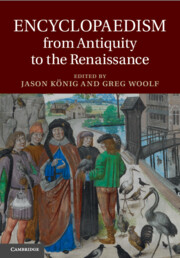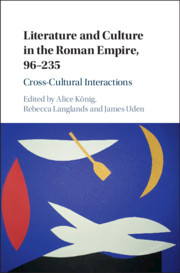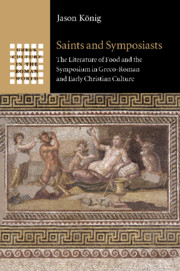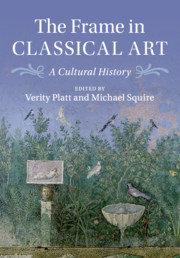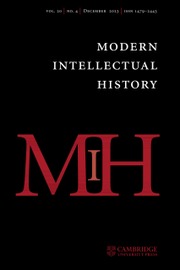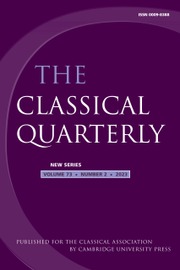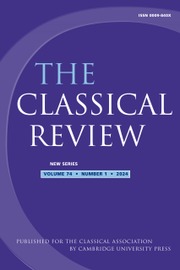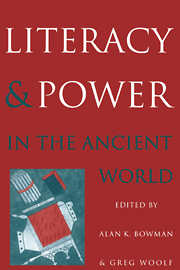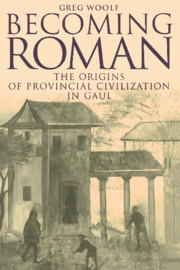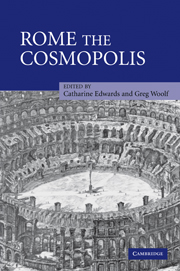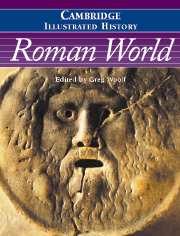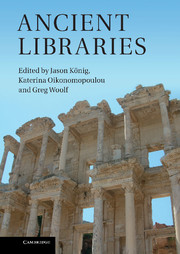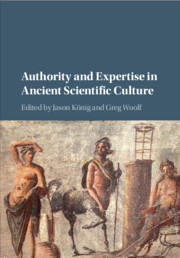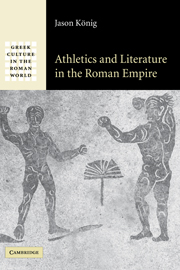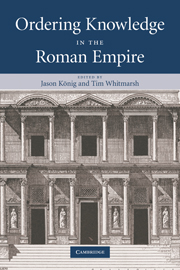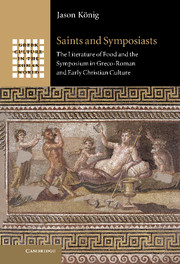Encyclopaedism from Antiquity to the Renaissance
£49.99
- Editors:
- Jason König, University of St Andrews, Scotland
- Greg Woolf, University of St Andrews, Scotland
- Date Published: February 2024
- availability: Available
- format: Paperback
- isbn: 9781009490757
£
49.99
Paperback
Other available formats:
Hardback, eBook
Looking for an inspection copy?
This title is not currently available on inspection
-
There is a rich body of encyclopaedic writing which survives from the two millennia before the Enlightenment. This book sheds new light on that material. It traces the development of traditions of knowledge ordering which stretched back to Pliny and Varro and others in the classical world. It works with a broad concept of encyclopaedism, resisting the idea that there was any clear pre-modern genre of the 'encyclopaedia', and showing instead how the rhetoric and techniques of comprehensive compilation left their mark on a surprising range of texts. In the process it draws attention to both remarkable similarities and striking differences between conventions of encyclopaedic compilation in different periods, with a focus primarily on European/Mediterranean culture. The book covers classical, medieval (including Byzantine and Arabic) and Renaissance culture in turn, and combines chapters which survey whole periods with others focused closely on individual texts as case studies.
Read more- Covers a wide range of encyclopaedic writing over more than two millennia, with introductory survey chapters on key periods and cultures
- Includes numerous in-depth case studies which break new ground on key texts
- Works with a broad concept of pre-modern encyclopaedic writing as a spectrum of texts which draw to different degrees on a set of shared motifs and structures, rather than a clearly defined genre
Reviews & endorsements
'… this volume can be used in two different ways: each article can be read separately (I think it will be its main use), but the whole reading is stimulating. The interest of this book is to remind us that the theme of encyclopaedism, apparently limited to a technical genre, is not of small importance: it enables us to think about intertextuality, visions of the world or relations between power and knowledge.' Jacques Elfassi, Bryn Mawr Classical Review
Customer reviews
Not yet reviewed
Be the first to review
Review was not posted due to profanity
×Product details
- Date Published: February 2024
- format: Paperback
- isbn: 9781009490757
- length: 617 pages
- dimensions: 244 x 170 x 32 mm
- weight: 1.049kg
- contains: 3 b/w illus. 1 table
- availability: Available
Table of Contents
1. Introduction: Jason König and Greg Woolf
Part I. Classical Encyclopaedism:
2. Encyclopaedism in the Roman Empire Jason König and Greg Woolf
3. Encyclopaedism in the Alexandrian Library Myrto Hatzimichali
4. Labores pro bono publico: the burdensome mission of Pliny's Natural History Mary Beagon
5. Encyclopaedias of virtue? Collections of sayings and stories about wise men in Greek Teresa Morgan
6. Plutarch's corpus of Quaestiones in the tradition of imperial Greek encyclopaedism Katerina Oikonomopoulou
7. Artemidorus' Oneirocritica as fragmentary encyclopaedia Daniel Harris-McCoy
8. Encyclopaedias and autocracy: Justinian's Encyclopaedia of Roman law Jill Harries
9. Late Latin encyclopaedism: towards a new paradigm of practical knowledge Marco Formisano
Part II. Medieval Encyclopaedism:
10. Byzantine encyclopaedism of the ninth and tenth centuries Paul Magdalino
11. The imperial systematisation of the past in Constantinople: Constantine VII and his Historical Excerpts András Németh
12. Ad maiorem Dei gloriam: Joseph Rhakendytès' synopsis of Byzantine learning Erika Gielen
13. Shifting horizons: the medieval compilation of knowledge as mirror of a changing world Elizabeth Keen
14. Isidore's Etymologies: on words and things Andrew Merrills
15. Loose Giblets: encyclopaedic sensibilities of ordinatio and compilatio in later medieval English literary culture and the sad case of Reginald Pecock Ian Johnson
16. Why was the fourteenth century a century of Arabic encyclopaedism? Elias Muhanna
17. Opening up a world of knowledge: Mamluk encyclopaedias and their readers Maaike van Berkel
Part III. Renaissance Encyclopaedism:
18. Revisiting Renaissance encyclopaedism Ann Blair
19. Philosophy and the Renaissance encyclopaedia: some observations D. C. Andersson
20. Reading 'Pliny's Ape' in the Renaissance: the Polyhistor of Caius Julius Solinus in the first century of print Paul Dover
21. Shakespeare's encyclopaedias Neil Rhodes
22. Big Dig: Dugdale's drainage and the dregs of England History of Embanking and Drayning Claire Preston
23. Irony and encyclopedic writing before (and after) the Enlightenment William West
Part IV. Chinese Encyclopaedism: A Postscript:
24. The passion to collect, select, and protect: fifteen hundred years of the Chinese encyclopaedia Harriet Zurndorfer.
Sorry, this resource is locked
Please register or sign in to request access. If you are having problems accessing these resources please email [email protected]
Register Sign in» Proceed
You are now leaving the Cambridge University Press website. Your eBook purchase and download will be completed by our partner www.ebooks.com. Please see the permission section of the www.ebooks.com catalogue page for details of the print & copy limits on our eBooks.
Continue ×Are you sure you want to delete your account?
This cannot be undone.
Thank you for your feedback which will help us improve our service.
If you requested a response, we will make sure to get back to you shortly.
×
